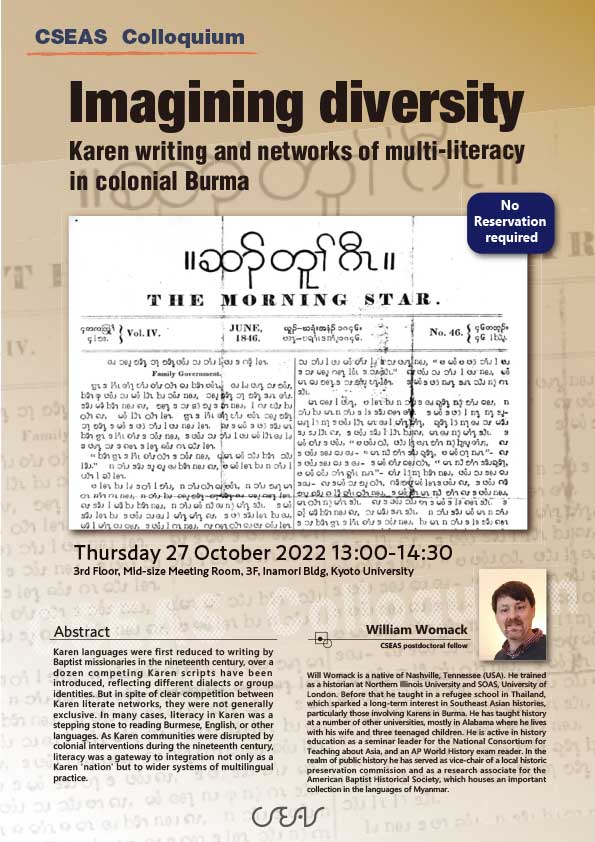Date & Time: Thursday 27 October, 2022
Venue: Middle-sized Meeting Room, 3F,
Inamori Foundation Building, Kyoto University
Title: Imagining diversity: Karen writing and networks of multi-literacy in colonial Burma
Speaker: Will Womack
Abstract:
Karen languages were first reduced to writing by Baptist missionaries in the nineteenth century, over a dozen competing Karen scripts have been introduced, reflecting different dialects or group identities. But in spite of clear competition between Karen literate networks, they were not generally exclusive. In many cases, literacy in Karen was a stepping stone to reading Burmese, English, or other languages. As Karen communities were disrupted by colonial interventions during the nineteenth century, literacy was a gateway to integration not only as a Karen ‘nation’ but to wider systems of multilingual practice.
Will Womack is a native of Nashville, Tennessee (USA). He trained as a historian at Northern Illinois University and SOAS, University of London. Before that he taught in a refugee school in Thailand, which sparked a long-term interest in Southeast Asian histories, particularly those involving Karens in Burma. He has taught history at a number of other universities, mostly in Alabama where he lives with his wife and three teenaged children. He is active in history education as a seminar leader for the National Consortium for Teaching about Asia, and an AP World History exam reader. In the realm of public history he has served as vice-chair of a local historic preservation commission and as a research associate for the American Baptist Historical Society, which houses an important collection in the languages of Myanmar.
Visitor’s Voice:
Interview with William Womack: Writing in a Connected World
